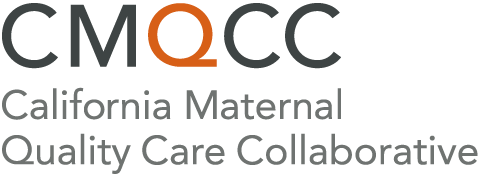CMQCC had three cohorts of the collaborative running from 2017 through 2019 with more than 95 California hospitals participating in total.
Why a collaborative?
- The national Healthy People 2020 recommendation for a hospital’s Nulliparous Term Singleton Vertex (NTSV) cesarean rate is to be at or below 23.9%.
- NTSV cesarean deliveries account for 40% of the cesarean births and for more than 60% of the overall rise in cesarean rates.
- High variation among California hospitals (from 11% to 77%) demonstrate substantial improvement opportunities.
- The rise in NTSV cesareans has not added any benefits to mothers or improved outcomes for neonates and can lead to more morbidities for low-risk women both for their first births as well as future pregnancies.
Benefits of Hospital Participation
Participating hospital teams received training materials, educational webinars, detailed real-time data reports and on-site assistance from experts, as well as other benefits including:
- Mentor support for implementation of bundle elements
- Development and implementation of consistent and standardized approaches to care
- Reduction in the risk of complications for mothers, such as: hemorrhage, uterine rupture, placenta abnormalities, cardiac events, infection, venous thromboembolism (VTE) and blood transfusions
- Access to the CMQCC Maternal Data Center to track and benchmark your hospital’s data for NTSV cesareans
- Identification of trends based on real-time data reports
- Data-driven insights into areas for focused quality improvement
- Drill-down data analysis by provider and provider-group levels
- Better outcomes for your moms and babies
Activities Led by CMQCC:
- Assisted hospitals across California to reduce nulliparous term singleton vertex (NTSV) cesareans through the implementation of the patient safety bundle developed by the Council on Patient Safety for Women’s Health and CMQCC’s Toolkit to Support Vaginal Birth and Reduce Primary Cesareans
- Included in-person and virtual learning sessions, as well as small group sharing and mentoring with local experts who provide accessible clinical and implementation expertise to their assigned teams
- Connected hospital team members with experts in patient safety, implementation, quality improvement, and data analytics
- Included required monthly web-based calls, as well as other educational opportunities both virtual and on site to work with hospitals to decrease NTSV cesarean rates.
- Involved peer group sharing of best practices and challenges
